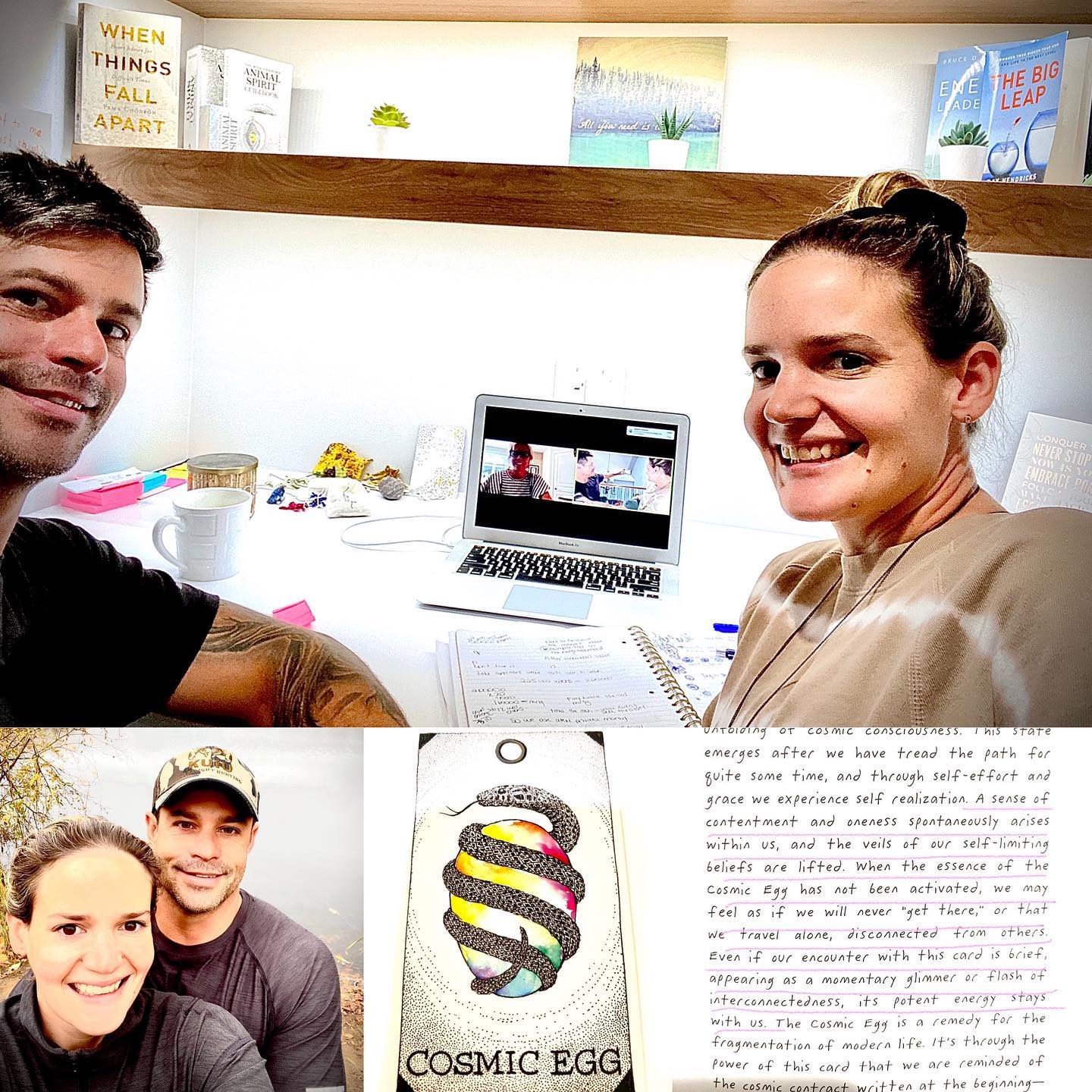
Allow us to introduce you to Jesse and Colette.
He knew he wanted more. He had a decent job but felt handcuffed to it. He had a family he loved and, in general, was satisfied with life. That was fine but he wanted more for the future and believed real estate investing could give him that. He read self-development books, was building his first investment property (a gorgeous fourplex) but was feeling uncertain, scared and generally like this should be a lot f*cking easier. It’s not that his wife and him were not on the same page – but it didn’t feel like she was willing to be involved or totally supportive either.
She was struggling with trust. She didn’t feel like her and her husband were fully connected and communicating well. There was nothing in particular that was going on and she couldn’t necessarily explain it. They had three great kids but as a family it felt more like going through the motions than anything else. She was a nurse which left her little time for herself. On the surface she agreed with investing in real estate. She believed that it would give her the opportunity to work less which would solve the “problem”.

Hypothetically Speaking…
Let’s say they join a typical real estate investing group. They’ll be told to define their purpose which they will say is to quit their jobs and live happily on a beach somewhere. Then they’ll go to meeting after meeting where people give talks to a room full of people about the theories of buying real estate – how to structure a joint venture, where to buy, how to manage properties etc etc. People will be brought on stage and rewarded for the number of properties they have in their portfolios. There’s nothing wrong with this … or is there?
Before we go any further, we need to put a disclaimer on this. We are not here to criticize real estate investing groups. In fact, we work with a number of good ones all the time. The issue is that the information is too general because they are talking to a group of people. Even when they aren’t talking to a group, the information being given is theory – the value is limited by the pure nature of it.
The Issues.
So, getting back to our couple and their path. The first issue is their “purpose”. It’s rarely about your job but your job is typically the easiest thing to blame. Also, you don’t have to wait to be successful to be happy – you can live your best life now. But that’s not what we’re taught to believe – we’re taught you either sacrifice now for your future or you indulge now at the expense of later.
The second issue is that real estate theory. Regardless of how good it is, it’s only half of the solution. Theory alone won’t allow you to implement and act on it. Theory is written in books that sit on shelves. Real estate investing is an action. See the disconnect?
The third issue is a little less obvious. Often at group meetings the membership fees are per person which discourages couples from attending. One spouse goes and the other stays at home with the kids. This way you don’t have to get a babysitter AND you don’t have to pay for 2 memberships. Our couple was already experiencing a lack of alignment. Creating more separation would have been like trying to put out a fire with gasoline. It would have led to further resentment and lack of trust.
The final issue is rewarding people for buying more properties. More properties don’t necessarily equal more success. If you remember, we mentioned our couple just built their first investment property – a GORGEOUS 4-plex. They built the property like they were going to live in it – with all the upgrades. People are emotionally driven when it comes to their homes. But this isn’t their home. This is an investment property. It’s a business and should be treated as such. If they continued to accumulate properties based on emotion they would have continued to over-invest and make bad business decisions.

What Actually Happened.
Luckily that was a hypothetical and not what actually happened. Here’s what actually happened. This couple came to a weekend event Jared was hosting. Because spouses came for free, both attended. Hearing Jared, an actual investor, talk about the challenges he faced in a no bullsh*t manner inspired them to join the private coaching program. The private coaching program encourages (to the point of almost requiring), couples to participate together.
Jared worked with them on creating structure and systems for managing their portfolio. He helped them define their specific strategy and goals. He stayed one step in front and two steps behind them on their journey (anticipating what was coming up while pushing them and holding them accountable).
Krista helped Jesse show up differently – to understand the impact that he had on his wife and others, communicate effectively, slow down and be conscious. She helped Colette get back into her heart – open herself up to connecting and being able to trust. Colette’s ability to trust Jesse also empowered him which allowed him to show up trustable – creating a situation where they mutually reinforced each other.

Today things are easier – they are moving faster and in sequence. They are connected to each other and themselves. They have moved beyond “fine” and are happy now (versus waiting for happiness in the future). He has quit his job and manages the kids, home and all the real estate. He has started a men’s group and is working towards becoming a coach. He shows up as trustable and is able to attract business partners and investors in a way he couldn’t before. She is loving her job and doing things for herself like taking yoga classes. They are better parents because they listen and hear each other. They are better set up for success – not only in real estate but in their marriage and life.


